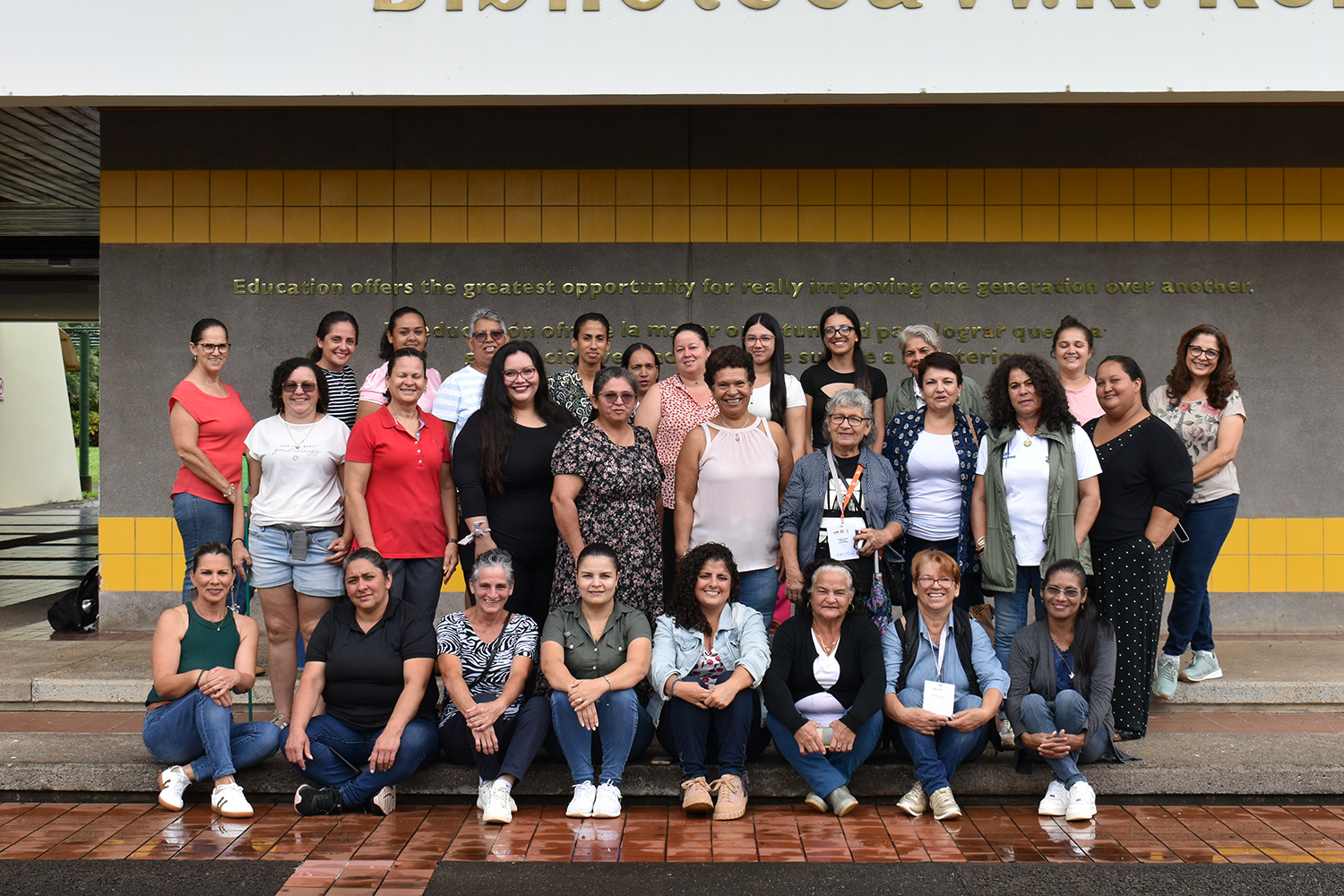Lorena Álvarez always dreamed of studying. She comes from a rural area in Costa Rica, where opportunities were limited during her childhood. The image of herself wearing a cap and gown, holding a diploma, was for a long time a blurry, almost impossible dream. That’s why, when she completed the intensive training program of the Resilient Agrifood Systems (RAS) Project—where she learned everything from finances to best agricultural practices—and received a training certificate in her hands, she felt, in her words, “like a little girl.” She had achieved a dream.
RAS is one of the initiatives of EARTH Futures, EARTH University’s global solutions center. EARTH Futures functions as a right hand, working to expand the University’s impact in rural communities through strategic partnerships with institutions, in this case with the Walmart Foundation, that also aim to improve people’s livelihoods while protecting natural resources.
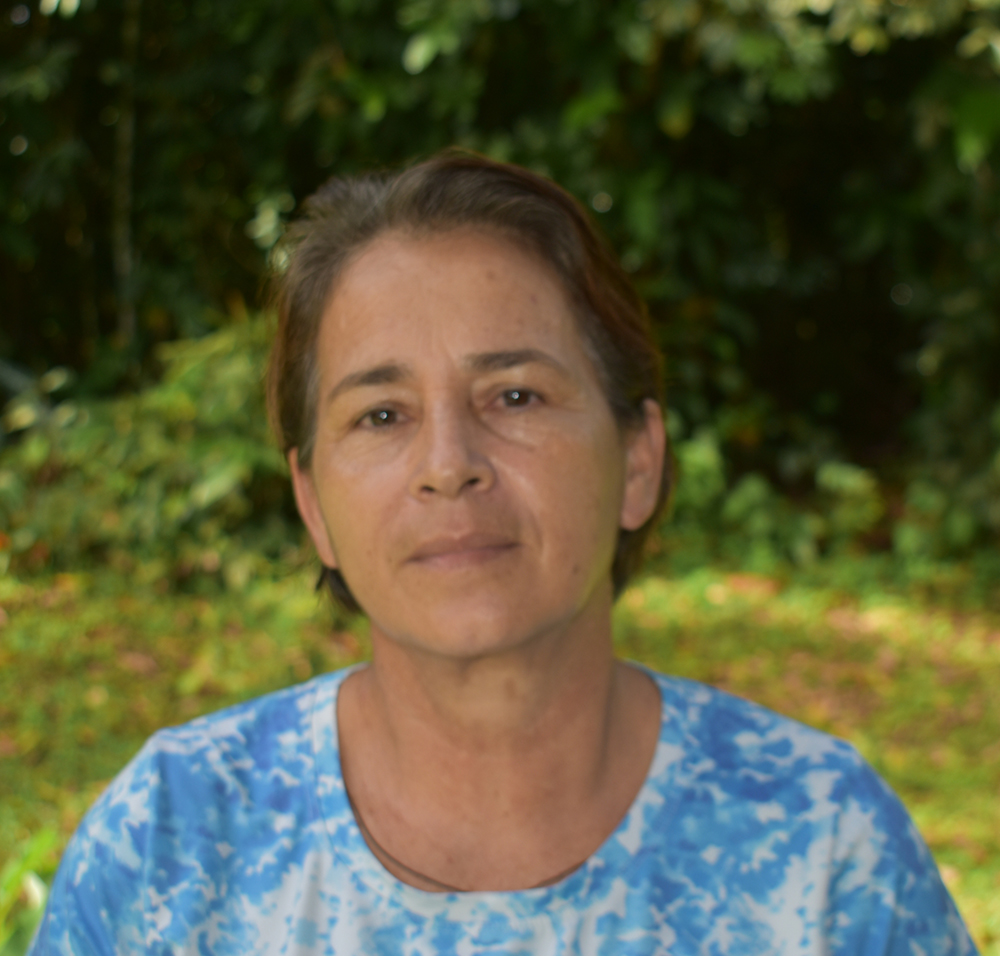
Lorena is 57 years old. She is a housewife who loves ornamental plants, which she carefully tends to in her garden. She had never dared to grow vegetables, she didn’t know how and was afraid of doing it wrong. Today, after completing the program, she has a small garden where she grows cilantro, lettuce, tomatoes, and other crops for her family’s consumption. She has even learned to keep financial records. “On the first day, I thought I would quit because numbers are really hard for me. But now I know how to manage my household finances. I never thought I’d learn so much at my age.”
From her family farm to her own biofactory—Yendry Bogantes, a participant of the program, grew up in a farming family, and always felt a deep connection to the land. That’s why she chose to study agronomy and discovered a passion for sustainability. During Costa Rica’s agricultural input shortage in 2021, she began experimenting with organic inputs on her family’s land. In 2024, she joined Nourishing the Future IV, a project funded by Cargill and implemented by CARE in collaboration with EARTH Futures. Through it, she received training to refine her production techniques and grow her business. Today, Yendry runs her own biofactory, producing four commercial bio-inputs and several others currently in the final approval process.
Stories like those of Yendry and Lorena are becoming more common across communities throughout the country thanks to projects like these and to the commitment of its participants.
For Zaida Miranda, the lessons she acquired weren’t just technical—they were also human. “For the final activity, we took the tour bus really early, not knowing who else would be there,” she recalls, “and we ended up meeting women from other communities—brave, hardworking women full of ideas.” Zaida is 51 years old and has dedicated her life to caring for her home and working alongside her husband in agriculture. Today, she grows her own vegetables from seed. “On the last day, we met a woman who ran a strawberry business—she was so empowered. That was a huge inspiration for me,” she says, referring to Sabrina Herrera, who was part of the first generation of Nourishing the Future IV and now leads her own productive venture.
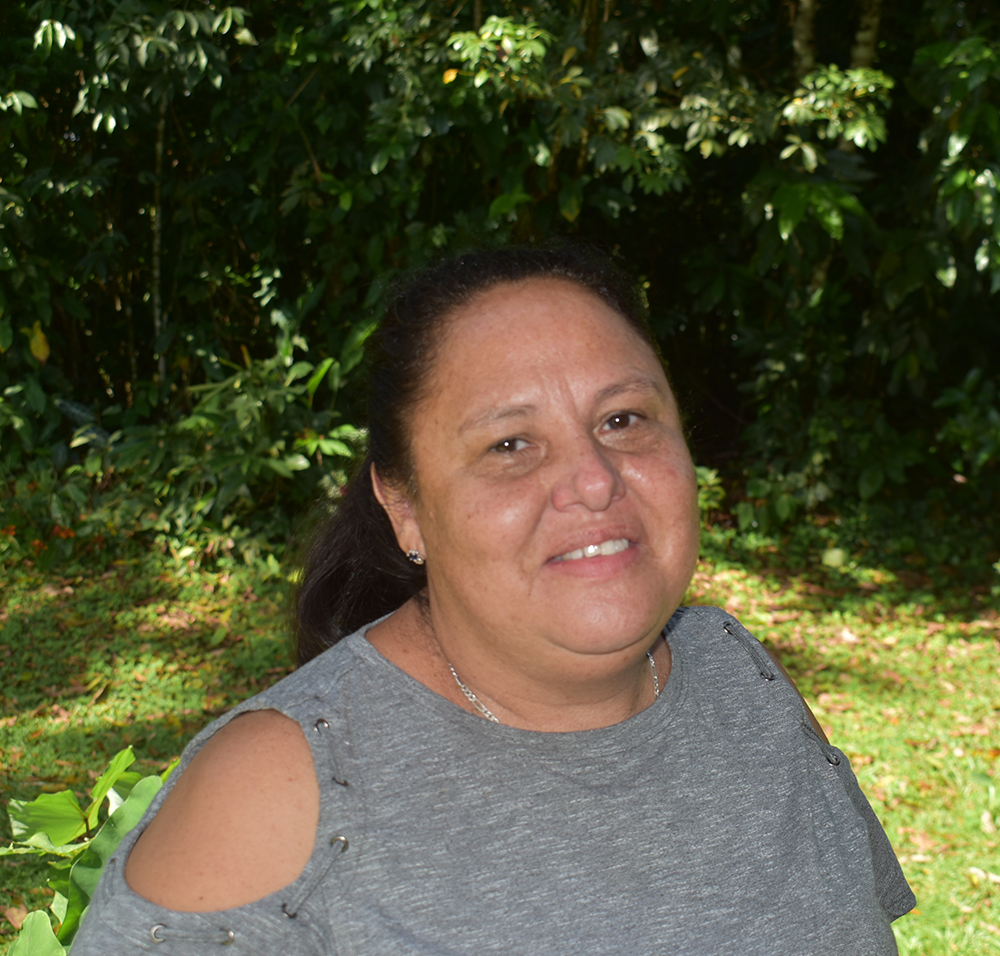
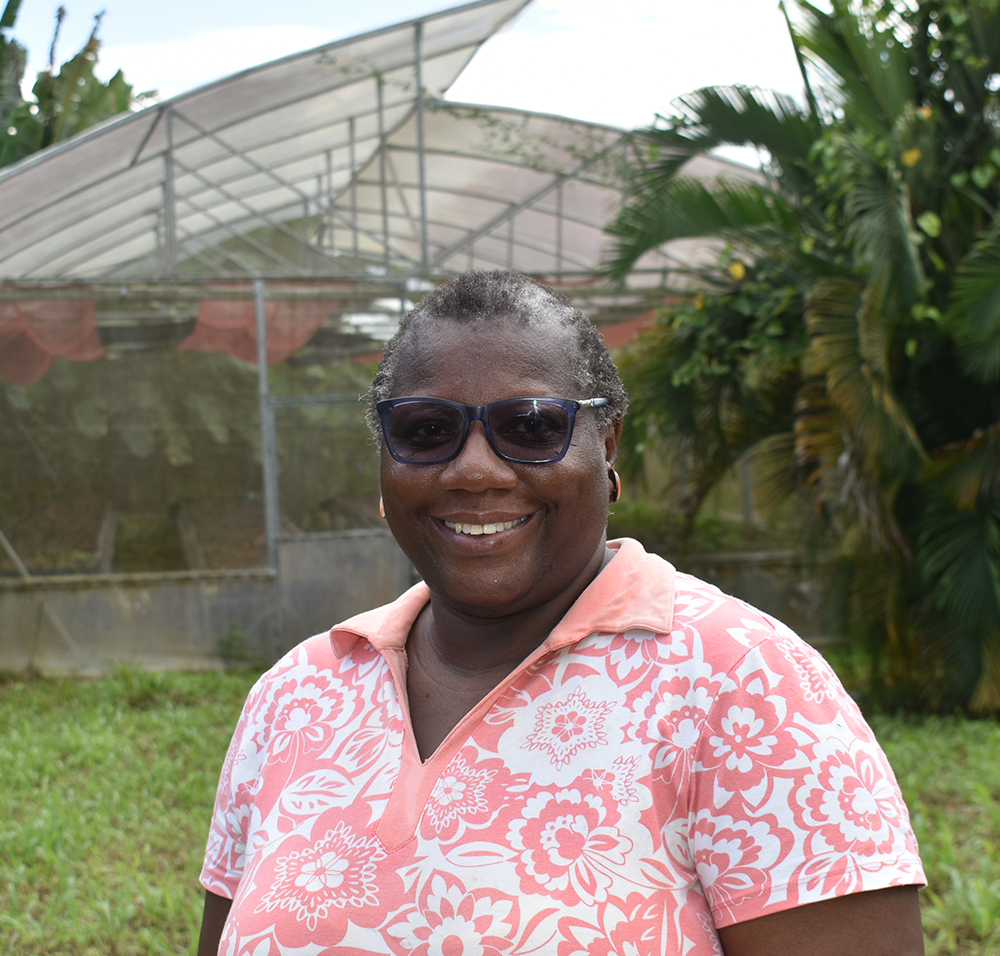
That same strength drives Glenda Lee Robinson, 57, who lives near the Caribbean coast of Costa Rica and has found in her home garden a way to take care of her health and her family’s well-being. Despite facing medical challenges, Glenda keeps going. For her, a home garden is not just a source of fresh food, it’s a form of empowerment. “Thanks to these courses, I’ve learned to take care of the environment, manage finances, and strengthen family and community unity,” she says.
Learning tours are essential in both projects and are part of a participatory methodology where individuals learn not only from the EARTH Futures team of facilitators but also from one another. These intentionally designed and human-centered spaces allow for the exchange of knowledge, the building of bonds, and the strengthening of identity. In both Nourishing the Future and Resilient Agrifood Systems, sessions include components on sustainable agriculture, financial education, socioemotional skills, and a gender perspective. They also create flexible, inclusive spaces—like rotating meetings among people’s homes—where food is shared, children are welcome, and conversations flow to foster connection, self-esteem, and community.
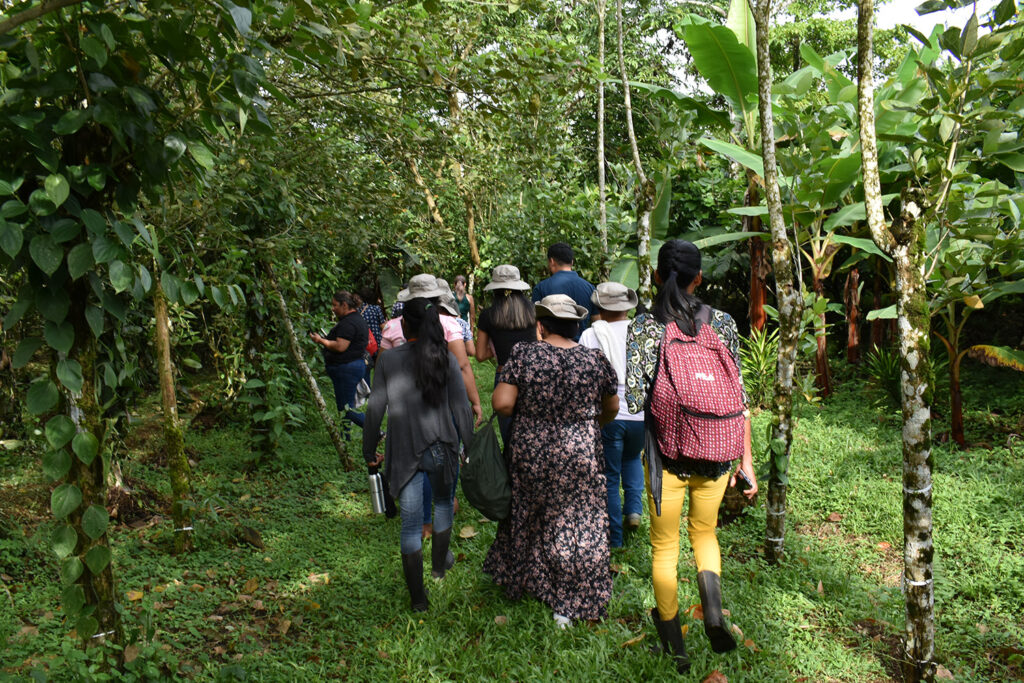
In mid-June 2025, Nourishing the Future IV awarded training certificates to 69 women and 26 men, while RAS certified 112 women and 22 men. Although Nourishing the Future is nearing its final stage, many of the methodologies developed by the team will continue and merge with other initiatives. EARTH Futures has built something that goes beyond technical training: it has built a horizontal space where learning is built in community, adapted to context, and—above all—empowers people, especially rural women. For many of them, taking part in a field trip or graduation ceremony is a moment to reclaim their work and their role in the community. A graduation is not an end—it’s an affirmation: that their knowledge, their effort, and their leadership matter.
